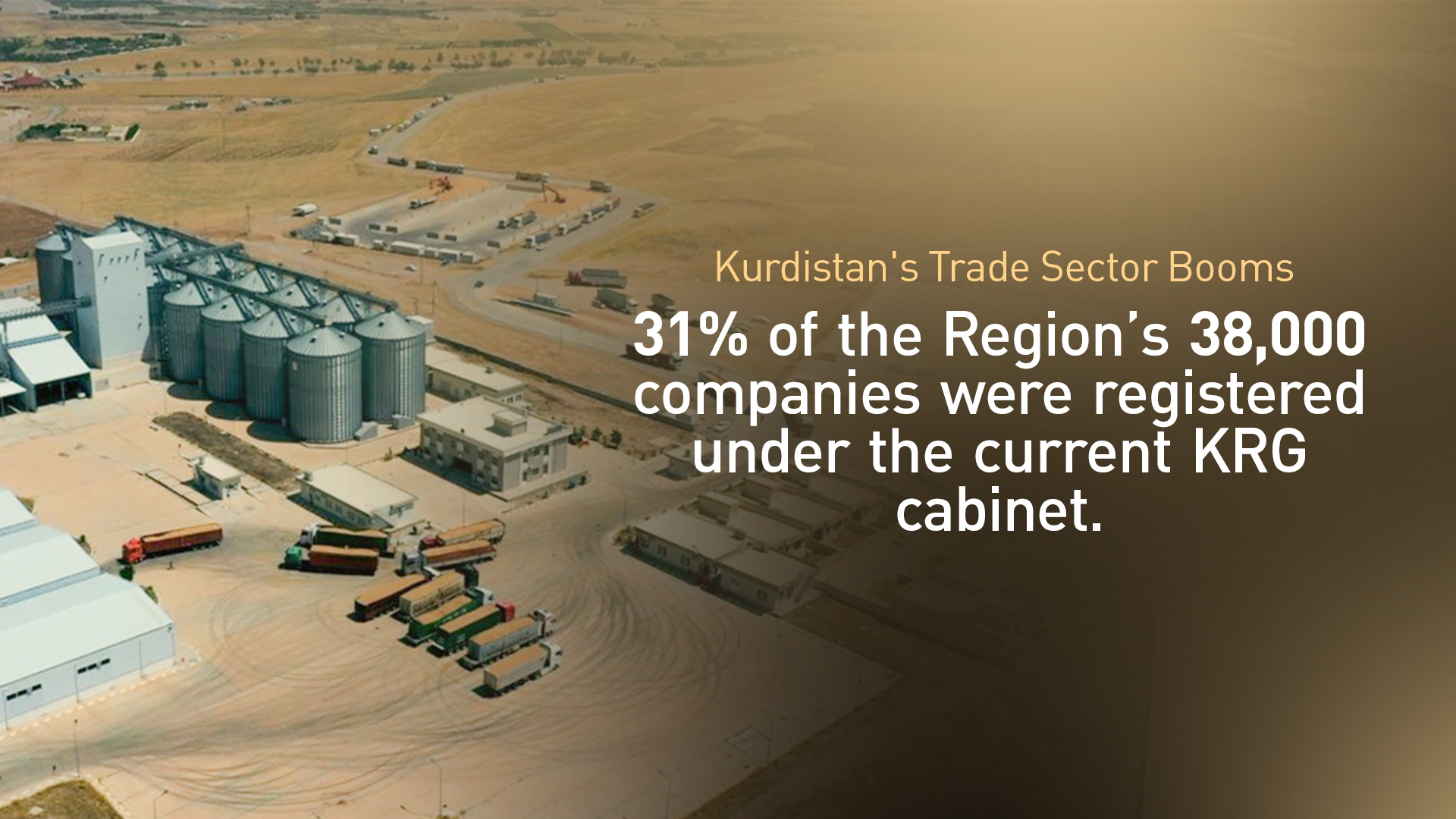KRG: Trade Booms, But Baghdad Creates 'Problems' for Exports
A KRG official says trade is booming, with 31% of companies registered under the 9th cabinet, which also built 3 silos. However, he notes Baghdad creates "problems" for Kurdistan's exports to southern Iraq.

By Kamaran Aziz
ERBIL (Kurdistan 24) – The Kurdistan Region is experiencing a significant commercial boom, with nearly a third of its 38,000 registered companies established during the current KRG cabinet's term, yet Baghdad is creating "problems" that obstruct the flow of Kurdistan's products to central and southern Iraq, a deputy minister announced.
Sarwar Hawari, the Deputy Minister of Trade and Industry, speaking on Kurdistan24's "Basi Roj" program with presenter Zhino Mohammed, said the Kurdistan Regional Government's (KRG) ninth cabinet has presided over a "major transformation" in the trade sector while also building key infrastructure like grain silos using its own internal revenue.
Hawari outlined the ministry's broad responsibilities, which include "registering companies, registering trademarks, licensing the import and export of goods and commodities from abroad, regulating domestic trade, and annual planning for projects in the trade and industry sectors in cooperation with the Board of Investment."
He highlighted the significant growth in the commercial sector, noting that of the 38,000 companies registered with the ministry, 31% were registered during the current cabinet's term. "These are commercial companies with business activities across all different sectors," he said.
According to the deputy minister, this expansion has had a positive economic impact. He stated that the increase in companies "leads to job creation, creates competition among companies, prevents market monopolies, and provides opportunities for work, trade, and industry for all domestic and foreign individuals," which has boosted commercial activity at border crossings and internally.
In addition to fostering private enterprise, Hawari detailed a key public-private success story. "The government has a cement factory in partnership with the private sector," he explained. "From the revenue of that cement factory, we have been able to build three silos over four years: the silos of Qushtapa, Rovia, and Kalar. Each silo's cost was between 19 and 23 billion dinars."
Despite these successes, Hawari said the Kurdistan Region's role as a major producer for the rest of the country is being actively hindered by the federal government.
"Seventy-five to eighty percent of the products from factories in the Kurdistan Region go to southern and central Iraq, while 20 percent is used domestically," he said. "This means we have become a supplier of goods and commodities for southern and central Iraq. However, Iraq has set up checkpoints and creates problems for us, finding a new excuse every day. It is willing to import goods from abroad but is unwilling to import them from the Kurdistan Region."
